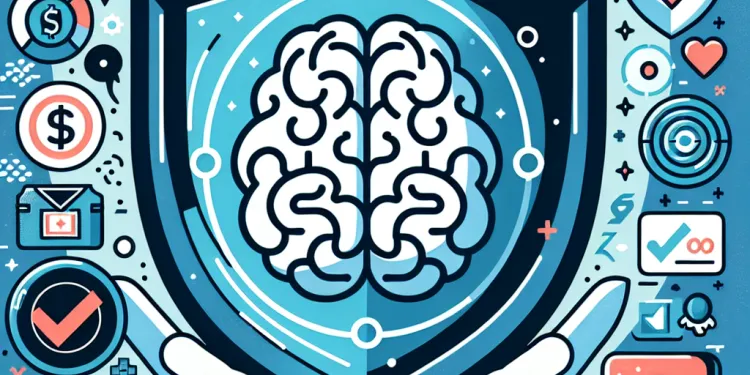
Find Help
More Items From Ergsy search
-
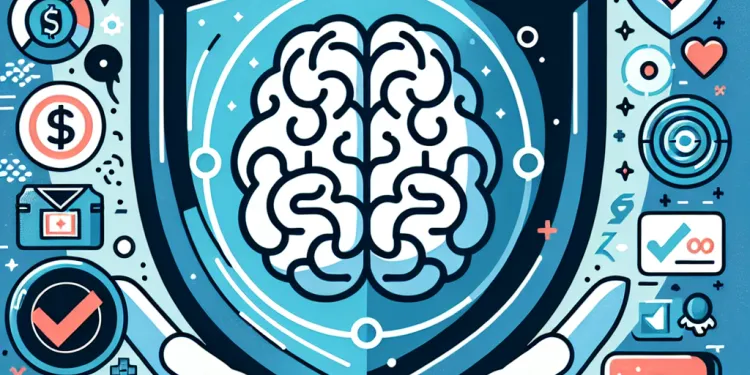
Who is at risk of developing Alzheimer's disease?
Relevance: 100%
-

What is Alzheimer's disease?
Relevance: 72%
-

What causes Alzheimer's disease?
Relevance: 72%
-

How common is Alzheimer's disease in the UK?
Relevance: 66%
-

Can Alzheimer's disease be prevented?
Relevance: 66%
-
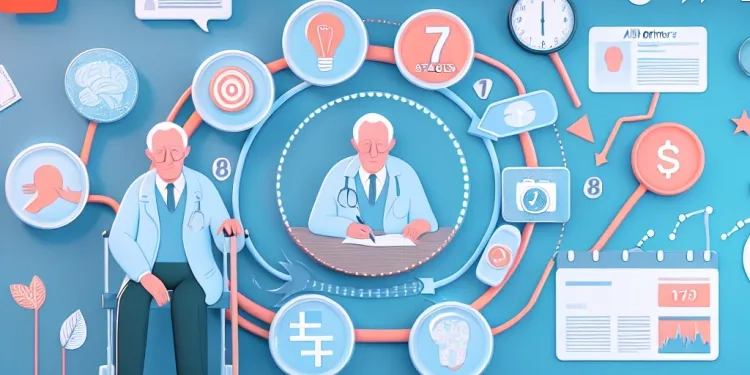
What are the stages of Alzheimer's disease?
Relevance: 66%
-
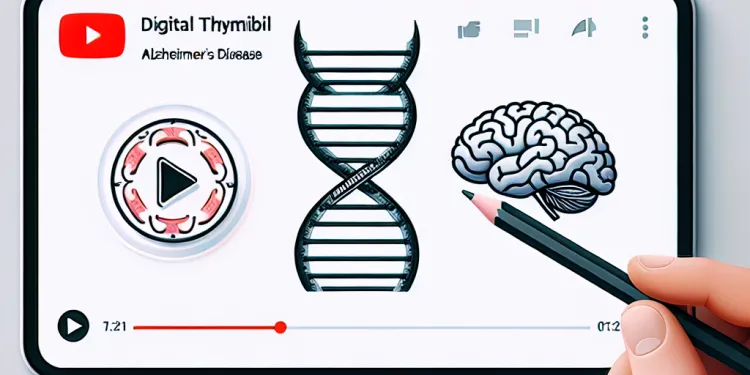
What role does genetics play in Alzheimer's disease?
Relevance: 66%
-

What treatments are available for Alzheimer's disease?
Relevance: 63%
-
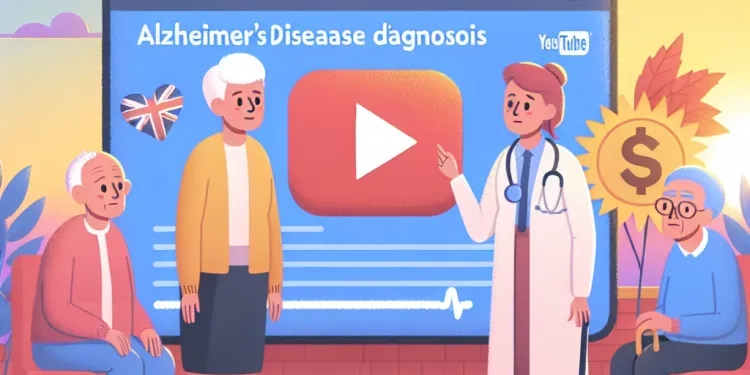
How is Alzheimer's disease diagnosed?
Relevance: 62%
-
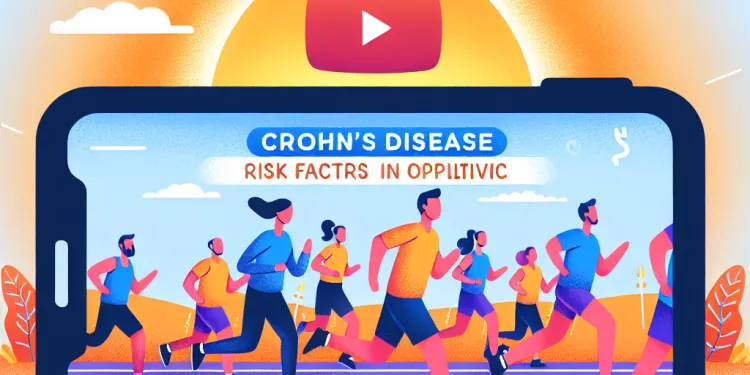
Who is at risk of developing Crohn's disease?
Relevance: 61%
-
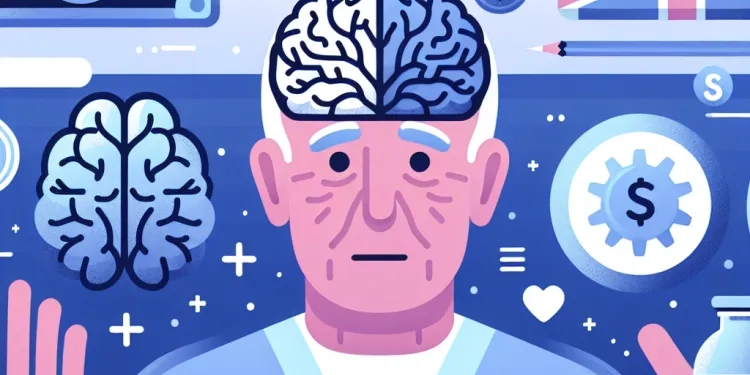
What are the symptoms of Alzheimer's disease?
Relevance: 61%
-
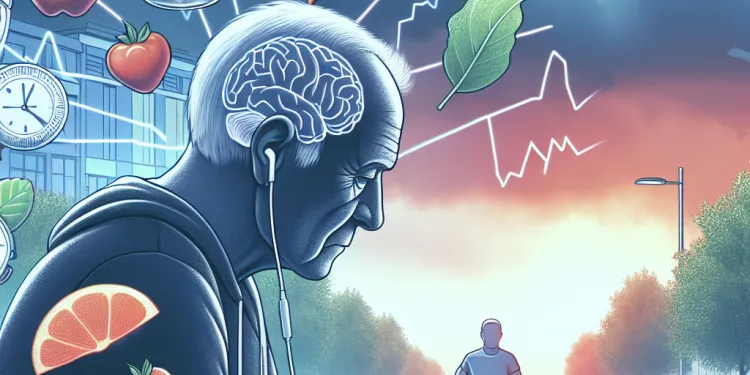
Are there any lifestyle changes that can help reduce the risk of Alzheimer's?
Relevance: 56%
-
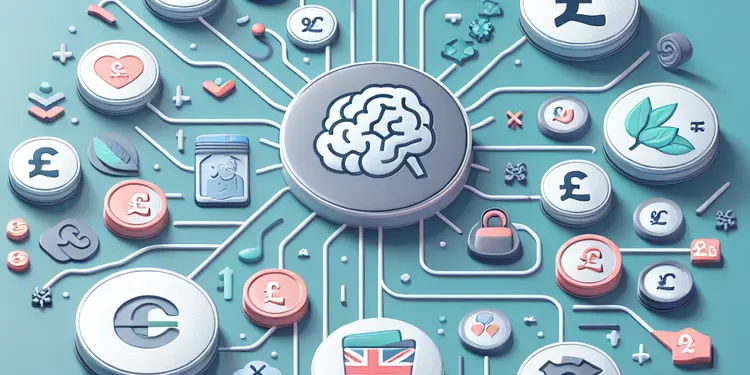
How can carers plan for future stages of Alzheimer's disease?
Relevance: 55%
-

Where can I find information about Alzheimer's disease for carers?
Relevance: 53%
-

Who is at risk for developing BPH?
Relevance: 49%
-

Who is at risk of developing shingles?
Relevance: 46%
-

How does Alzheimer's affect daily life?
Relevance: 46%
-

Can children develop Crohn's disease?
Relevance: 44%
-

Who is at risk of developing eczema?
Relevance: 44%
-

Can technology aid in the care of Alzheimer's patients?
Relevance: 44%
-

Who is at risk of developing SAD?
Relevance: 44%
-

Who is at risk for flesh-eating disease?
Relevance: 43%
-

What support is available for carers of Alzheimer's patients?
Relevance: 42%
-
Who is at risk for developing an eating disorder?
Relevance: 42%
-

Are there any risk factors for developing hypotony?
Relevance: 41%
-

What types of support are available for carers of Alzheimer's patients?
Relevance: 40%
-
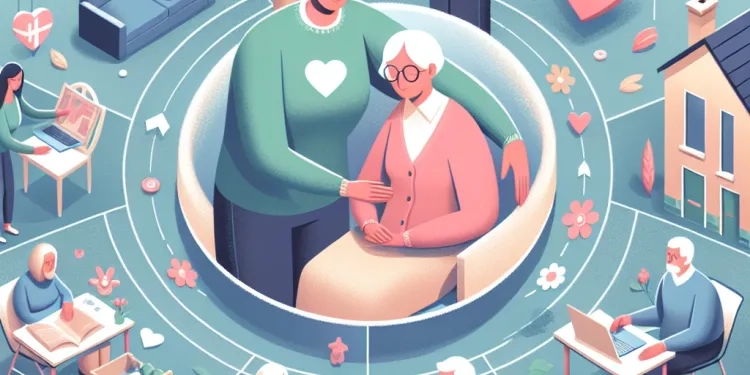
How can families support a loved one with Alzheimer's?
Relevance: 40%
-

What online communities exist for carers of people with Alzheimer's?
Relevance: 40%
-

Are there specific apps or tools to help carers of Alzheimer's patients?
Relevance: 40%
-

Who is at risk of developing chronic fatigue syndrome?
Relevance: 40%
-
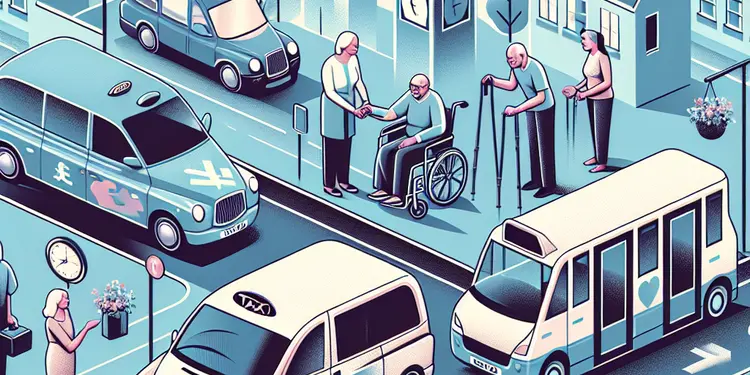
What transportation services are available for Alzheimer's patients and their carers?
Relevance: 40%
-

What are risk factors for developing sleep apnea?
Relevance: 40%
-

How important is self-care for carers of Alzheimer's patients?
Relevance: 40%
-

Who is at risk of developing shingles?
Relevance: 38%
-
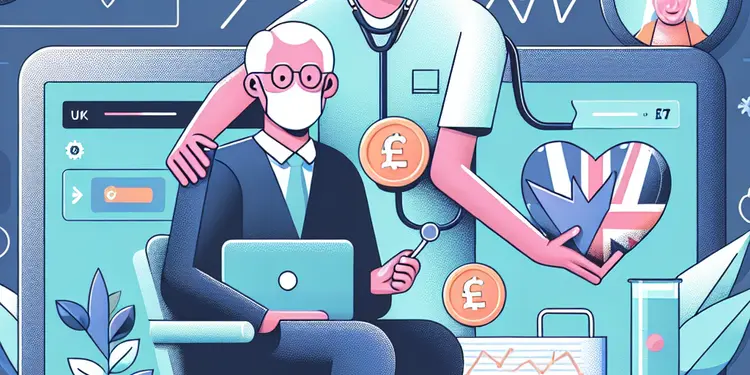
What emotional support is available for carers of Alzheimer's patients?
Relevance: 38%
-
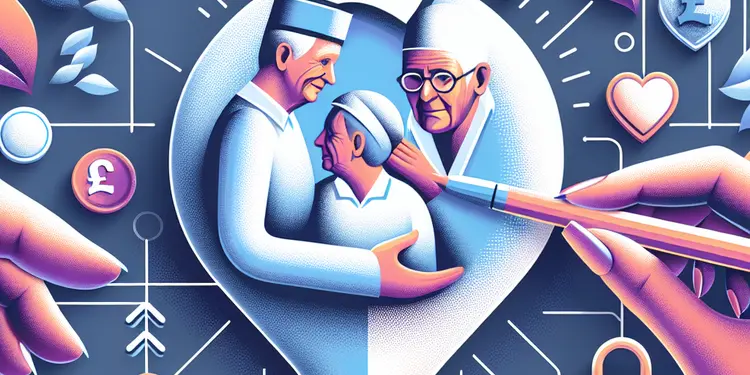
Are there financial support programs for carers of Alzheimer's patients?
Relevance: 37%
-
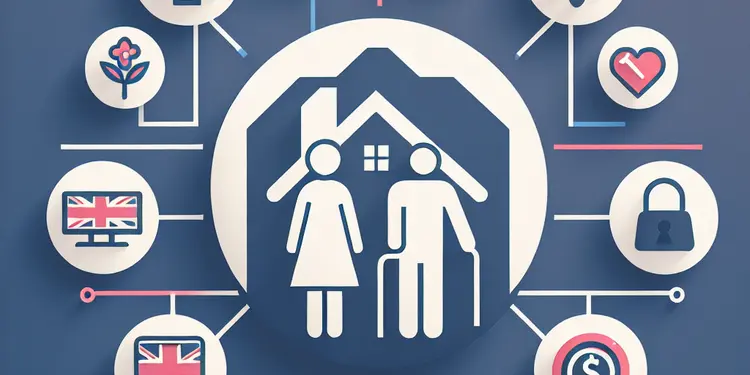
Can carers of Alzheimer's patients access in-home healthcare services?
Relevance: 37%
-

What government assistance is available for carers of Alzheimer's patients?
Relevance: 37%
-

How can support groups benefit carers of Alzheimer's patients?
Relevance: 37%
-
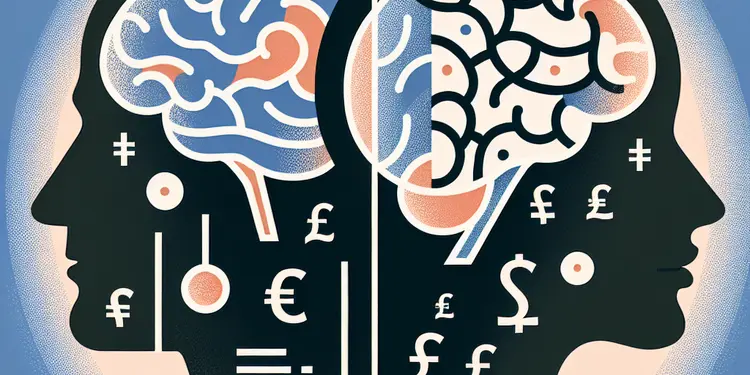
Do male and female brains age differently regarding dementia risk?
Relevance: 36%
Understanding The Risk Factors for Alzheimer's Disease
Alzheimer's disease is a progressive neurological disorder that affects memory and other cognitive functions. Understanding who is at risk can help with early detection and potentially slow its progression. This is particularly relevant in the United Kingdom, where an increasing number of people live well into old age.
Age: The Primary Risk Factor
Age is the most significant known risk factor for Alzheimer's disease. While it is not a part of normal ageing, the risk of developing Alzheimer's increases as one gets older. In the UK, individuals over the age of 65 commonly exhibit a higher propensity towards this condition, with the risk doubling roughly every five years beyond this age.
Genetics and Family History
Genetic predisposition plays a considerable role in the development of Alzheimer's. If a first-degree relative, such as a parent or sibling, has been diagnosed with the disease, your own risk may increase. In particular, specific genetic mutations, such as those in the apolipoprotein E (APOE) gene, have been linked to the disease.
Lifestyle and Health Conditions
Several modifiable lifestyle factors may increase the risk of Alzheimer's disease. Cardiovascular health directly impacts brain health, and conditions like hypertension, diabetes, and high cholesterol have been linked to an increased risk. Additionally, sedentary lifestyle, smoking, and poor diet may compound this risk.
Gender: A Notable Difference
Statistics show that women are more likely than men to develop Alzheimer's. While the reasons are not entirely clear, it is observed that women tend to live longer than men, which may contribute to the increased risk given the age-related nature of the disease.
Education and Cognitive Activity
Education has been shown to play a role in Alzheimer's risk. Individuals with lower educational attainment or lesser engagement in cognitive activities are found to be at a higher risk. Mental stimulation throughout life, including reading and engaging in complex tasks, can act as a protective factor.
Conclusion
Alzheimer's disease is influenced by a variety of risk factors, some modifiable and some not. Understanding these can aid in prevention strategies and foster early intervention. In the United Kingdom, awareness and education around these risks are vital for managing public health impacts as the population ages.
Understanding The Risk Factors for Alzheimer's Disease
Alzheimer's disease is an illness that affects the brain. It makes it hard to remember things and think clearly. Knowing who can get Alzheimer's can help find it early and slow it down. This is important in the United Kingdom, where more people are living to be very old.
Age: The Primary Risk Factor
Age is the biggest risk for Alzheimer's. It is not a normal part of getting older, but the risk goes up as people age. In the UK, people over 65 have a higher chance of getting Alzheimer's. The risk gets higher every five years after age 65.
Genetics and Family History
Your genes can make you more likely to get Alzheimer's. If a close family member, like a parent or brother or sister, has Alzheimer's, your chance might be higher. Some specific genes are linked to the disease, like the APOE gene.
Lifestyle and Health Conditions
How you live can affect your risk of Alzheimer's. Heart health affects brain health. Problems like high blood pressure, diabetes, and high cholesterol can increase the risk. Not moving a lot, smoking, and eating unhealthy food can also make the risk higher.
Gender: A Notable Difference
Women have a higher chance of getting Alzheimer's than men. This might be because women usually live longer than men. The longer you live, the higher the risk because Alzheimer's is linked to getting older.
Education and Cognitive Activity
Learning and using your brain can affect your Alzheimer's risk. People who do not have a lot of schooling or do not do many brain activities are more at risk. Using your brain, like reading and solving problems, can help protect against Alzheimer's.
Conclusion
Alzheimer's disease has different risk factors. Some you can change, and some you cannot. Knowing these can help prevent the disease and start helping people early. In the UK, knowing these risks helps manage health as the population gets older.
Helpful Tips:
- Regular exercise can help your heart and brain.
- Eating healthy foods is good for your body and mind.
- Stay mentally active by reading or doing puzzles.
- Do not smoke and keep a healthy weight.
- Have regular health check-ups.
Frequently Asked Questions
What is Alzheimer's disease?
Alzheimer's disease is a progressive neurological disorder that leads to memory loss, cognitive decline, and personality changes. It is the most common cause of dementia in the United Kingdom.
Who is most at risk of developing Alzheimer's disease?
The greatest known risk factor for Alzheimer's disease is increasing age. Most people with Alzheimer's are aged 65 and older, but it is not a normal part of ageing.
Does having a family history of Alzheimer's increase my risk?
Yes, having a family history of Alzheimer's does increase your risk. If more than one family member has the disease, your risk increases further.
How does genetics influence Alzheimer's disease risk?
Genetic factors can play a role in the development of Alzheimer's. Mutations in certain genes like APOE-e4 can increase the risk, but they do not guarantee that you will develop the disease.
Are women more at risk than men for Alzheimer's disease?
Women are more likely than men to develop Alzheimer's disease. This may be partially due to women generally living longer, but hormonal differences may also play a role.
Can lifestyle factors influence my risk of Alzheimer's disease?
Yes, lifestyle factors such as diet, physical activity, alcohol consumption, and smoking can impact your risk of developing Alzheimer's disease. A healthy lifestyle can reduce this risk.
Does head trauma increase the risk of Alzheimer's?
Yes, a history of severe head trauma or repeated head injuries can increase the risk of Alzheimer's disease.
Are certain ethnic groups more at risk for Alzheimer's?
In the UK, some studies suggest that certain ethnic groups, such as African-Caribbean and South Asian communities, may have a higher risk due to various genetic and lifestyle factors.
Do chronic diseases affect the risk of Alzheimer's?
Chronic diseases like diabetes, hypertension, and obesity are linked to an increased risk of Alzheimer's disease.
Can stress and depression increase the likelihood of Alzheimer's?
Chronic stress and depression may increase the risk of Alzheimer's disease, possibly due to prolonged exposure to stress hormones impacting brain health.
Is there an environmental component to Alzheimer's risk?
While less understood, environmental factors such as exposure to heavy metals or toxins may contribute to Alzheimer's disease risk.
Can cardiovascular health affect Alzheimer's risk?
Yes, cardiovascular health is closely linked to brain health. Proper management of heart-related conditions can decrease the risk of Alzheimer's.
Is there a link between education level and Alzheimer's risk?
Studies suggest that a higher level of education may be associated with a lower risk of Alzheimer's, possibly due to increased cognitive reserve.
What role do social connections play in Alzheimer's risk?
Maintaining strong social connections and engaging in mentally stimulating activities can reduce the risk of cognitive decline and Alzheimer's.
Is early-onset Alzheimer's a risk for younger people?
Early-onset Alzheimer's is rare, affecting people younger than 65. It accounts for a small percentage of cases and may have a stronger genetic link.
What is Alzheimer's disease?
Alzheimer's disease is an illness that affects the brain. It makes it hard to remember things, think clearly, and do everyday tasks. People with Alzheimer's may forget names, dates, or where they put things. It can be confusing and frustrating.
Here are some ways to help:
- Use pictures and labels to remember important things.
- Keep a daily routine to make days easier.
- Ask for help from family and friends.
People with Alzheimer's need love and support. Helping them can make their day better.
Alzheimer's disease is a brain illness. It gets worse over time. It makes people forget things and have trouble thinking. It can also change how people act. In the United Kingdom, it is the main reason for dementia, which makes it hard for people to remember and think clearly.
Who can get Alzheimer's disease most easily?
Some people might get Alzheimer's disease more than others. Here are some things that might make it easier for someone to get it:
- Being Older: People who are older might get Alzheimer's disease more.
- Family History: If someone in your family has it, you might get it too.
- Health: Things like high blood pressure or not exercising can make it easier to get.
- Genes: Some people have special genes that make it more likely.
If you or someone you know is worried, it's good to talk to a doctor. They can help and give advice.
To understand this better, you can use pictures or ask someone to read it with you. These can help make things clearer.
Getting older is the biggest risk for Alzheimer's. Most people with Alzheimer's are 65 or older, but it is not something that always happens when we age.
Can I get Alzheimer's if it runs in my family?
If someone in your family has Alzheimer's, you might worry about getting it too. Remember, not everyone in the family will get it. It's good to talk to a doctor if you have concerns.
Here are some tips to help:
- Speak with a doctor about your worries.
- Keep a healthy lifestyle: eat well and exercise.
- Use memory games and puzzles to keep your brain active.
Yes, if someone in your family had Alzheimer's, it means you have a higher chance of getting it too. If more than one person in your family had it, your chances go up even more.
Here are some tips to help understand this:
- Talk to your doctor. They can explain more about your risk.
- Look for support groups. They can help you learn and feel better.
- Learn about ways to keep your brain healthy, like eating well and exercising.
How do genes affect the chance of getting Alzheimer's disease?
Genes are like instructions in our bodies. They help decide things like hair color and eye color. Genes can also affect health. Some genes can make it more likely for a person to get Alzheimer's disease.
Scientists study which genes are linked to Alzheimer's. Knowing about these genes helps doctors understand the disease better.
People who want to learn more can talk with doctors or use tools like picture books or videos to help explain things. These tools can make it easier to understand how genes work.
Genes can sometimes affect if someone gets Alzheimer's. If there are changes, called mutations, in certain genes like APOE-e4, it might make it more likely. But it does not mean you will definitely get the disease.
Do women get Alzheimer's disease more than men?
More women get Alzheimer's disease than men. This might be because women often live longer. Another reason could be differences in hormones, which are special chemicals in the body.
Can the way I live change my chance of getting Alzheimer's disease?
The way you live every day can change your chance of getting Alzheimer's disease. Alzheimer's is a disease that affects the brain and memory.
Here are some things that might help lower your risk:
- Eat healthy food: Eating fruits, vegetables, and whole grains is good for your brain.
- Exercise regularly: Moving your body helps keep your brain healthy.
- Sleep well: Make sure you get enough sleep every night.
- Stay social: Spend time with friends and family.
- Learn new things: Try puzzles or learn a new skill to keep your brain active.
These tips might help, but they do not guarantee you won't get Alzheimer's. Always talk to a doctor for the best advice.
Yes, how you live your life can change your chances of getting Alzheimer's disease. This includes what you eat, how much you move, if you drink alcohol, and if you smoke. Living healthy can make your chances smaller.
Can hurting your head make Alzheimer's more likely?
Sometimes, when people hurt their heads, it can change how their brain works. This can happen if someone has a big bump or injury to their head.
People want to know if hurting your head a lot can make it more likely to get a sickness called Alzheimer's when you are older. Alzheimer's makes people forget things and can make it hard to think clearly.
If you or someone you know has hurt their head, it’s a good idea to talk to a doctor. The doctor can help you understand what to do next.
It can also help to use simple pictures or stories to learn more about this. There are also phone apps and gentle brain games that can help keep your brain healthy.
Yes, getting hurt badly in the head or hurting your head many times can make it more likely to get Alzheimer's disease.
Do some ethnic groups get Alzheimer's more often?
Some ethnic groups might get Alzheimer's disease more than others. Alzheimer's is a disease that affects the brain and memory. It is important to learn about it so we can help people stay healthy.
Here are some tips to understand better:
- Use simple, short sentences.
- Ask someone to explain it if you don't understand.
- Look for pictures or videos that can help explain.
Remember, everyone can learn in different ways, and that's okay!
In the UK, some studies say that people from some ethnic groups may have a higher risk for health problems. These groups include African-Caribbean and South Asian communities. This is because of genes (how they are born) and how they live.
If you want to learn more, asking a teacher or using a picture dictionary can help. Also, listening to audiobooks can make it easier to understand.
Do long-term illnesses change the chance of getting Alzheimer's?
Some long-term illnesses might change your risk of getting Alzheimer's disease. This means if you have certain illnesses for a long time, it could affect whether you get Alzheimer's.
Tools that might help:
- Talk to a doctor. They can give you advice.
- Read simple books about health.
- Watch videos made for children about staying healthy.
- Use picture charts to understand information better.
Illnesses that last a long time, like diabetes, high blood pressure, and being very overweight, can make it more likely you will get Alzheimer's disease.
Can feeling very stressed or sad make someone more likely to get Alzheimer's?
Yes, feeling very stressed or very sad for a long time can make it more likely for a person to get Alzheimer's disease. If you are feeling stressed or sad: - Talk to someone you trust, like a family member or a friend. - Try to do things that make you happy, like drawing or playing outside. - Ask for help from a teacher or a therapist. These things can help you feel better and reduce stress or sadness.Being stressed or sad for a long time can make it more likely to get Alzheimer's disease. This might happen because too much stress can be bad for the brain.
Can the Environment Affect the Chance of Getting Alzheimer's?
We do not know as much about this, but things like being around heavy metals or poisons might make Alzheimer's disease more likely.
Can heart health change the chance of getting Alzheimer's?
Yes, keeping your heart healthy helps your brain stay healthy too. Looking after your heart can lower the chance of getting Alzheimer's disease.
Does school learning affect the chance of getting Alzheimer's?
School learning is what we learn at school or by studying.
Alzheimer's is an illness that makes it hard to remember things.
Some people say learning more at school may help keep your brain healthy.
If you want to know more, it can help to talk to a doctor.
Studies show that going to school and learning more might help protect your brain. It could lower the chance of getting Alzheimer's disease. This is because learning builds something called “cognitive reserve.”
How do friends and family affect the chance of getting Alzheimer's?
Having good friends and spending time with family can help your brain stay healthy. This might make it less likely for a person to get Alzheimer's as they get older.
Here are some ways to help keep your brain healthy:
- Talk with friends and family often.
- Join clubs or groups where you can meet new people.
- Play games that make you think.
These things can help your brain stay strong as you grow older.
Having good friends and spending time with them can help keep your brain healthy. Doing activities that make you think, like puzzles or reading, is also good for your brain. These things can help stop your brain from getting weaker as you get older.
Can young people get early Alzheimer's disease?
Alzheimer's disease is a brain illness. It mostly affects older people. But sometimes, it can affect younger people too. This is called early-onset Alzheimer's.
Here are some things that might be helpful:
- Use simple words to explain things.
- Speak slowly and clearly.
- Use pictures or videos to help understand the topic.
- Ask questions if you need help to understand.
Early-onset Alzheimer's is a special type of Alzheimer's that happens in people younger than 65 years old. It doesn't happen very often. This kind of Alzheimer's might run in families more than other types.
Useful Links
This website offers general information and is not a substitute for professional advice.
Always seek guidance from qualified professionals.
If you have any medical concerns or need urgent help, contact a healthcare professional or emergency services immediately.
Some of this content was generated with AI assistance. We’ve done our best to keep it accurate, helpful, and human-friendly.
- Ergsy carfully checks the information in the videos we provide here.
- Videos shown by Youtube after a video has completed, have NOT been reviewed by ERGSY.
- To view, click the arrow in centre of video.
- Most of the videos you find here will have subtitles and/or closed captions available.
- You may need to turn these on, and choose your preferred language.
- Go to the video you'd like to watch.
- If closed captions (CC) are available, settings will be visible on the bottom right of the video player.
- To turn on Captions, click settings .
- To turn off Captions, click settings again.
More Items From Ergsy search
-

Who is at risk of developing Alzheimer's disease?
Relevance: 100%
-

What is Alzheimer's disease?
Relevance: 72%
-

What causes Alzheimer's disease?
Relevance: 72%
-

How common is Alzheimer's disease in the UK?
Relevance: 66%
-

Can Alzheimer's disease be prevented?
Relevance: 66%
-

What are the stages of Alzheimer's disease?
Relevance: 66%
-

What role does genetics play in Alzheimer's disease?
Relevance: 66%
-

What treatments are available for Alzheimer's disease?
Relevance: 63%
-

How is Alzheimer's disease diagnosed?
Relevance: 62%
-

Who is at risk of developing Crohn's disease?
Relevance: 61%
-

What are the symptoms of Alzheimer's disease?
Relevance: 61%
-

Are there any lifestyle changes that can help reduce the risk of Alzheimer's?
Relevance: 56%
-

How can carers plan for future stages of Alzheimer's disease?
Relevance: 55%
-

Where can I find information about Alzheimer's disease for carers?
Relevance: 53%
-

Who is at risk for developing BPH?
Relevance: 49%
-

Who is at risk of developing shingles?
Relevance: 46%
-

How does Alzheimer's affect daily life?
Relevance: 46%
-

Can children develop Crohn's disease?
Relevance: 44%
-

Who is at risk of developing eczema?
Relevance: 44%
-

Can technology aid in the care of Alzheimer's patients?
Relevance: 44%
-

Who is at risk of developing SAD?
Relevance: 44%
-

Who is at risk for flesh-eating disease?
Relevance: 43%
-

What support is available for carers of Alzheimer's patients?
Relevance: 42%
-
Who is at risk for developing an eating disorder?
Relevance: 42%
-

Are there any risk factors for developing hypotony?
Relevance: 41%
-

What types of support are available for carers of Alzheimer's patients?
Relevance: 40%
-

How can families support a loved one with Alzheimer's?
Relevance: 40%
-

What online communities exist for carers of people with Alzheimer's?
Relevance: 40%
-

Are there specific apps or tools to help carers of Alzheimer's patients?
Relevance: 40%
-

Who is at risk of developing chronic fatigue syndrome?
Relevance: 40%
-

What transportation services are available for Alzheimer's patients and their carers?
Relevance: 40%
-

What are risk factors for developing sleep apnea?
Relevance: 40%
-

How important is self-care for carers of Alzheimer's patients?
Relevance: 40%
-

Who is at risk of developing shingles?
Relevance: 38%
-

What emotional support is available for carers of Alzheimer's patients?
Relevance: 38%
-

Are there financial support programs for carers of Alzheimer's patients?
Relevance: 37%
-

Can carers of Alzheimer's patients access in-home healthcare services?
Relevance: 37%
-

What government assistance is available for carers of Alzheimer's patients?
Relevance: 37%
-

How can support groups benefit carers of Alzheimer's patients?
Relevance: 37%
-

Do male and female brains age differently regarding dementia risk?
Relevance: 36%


